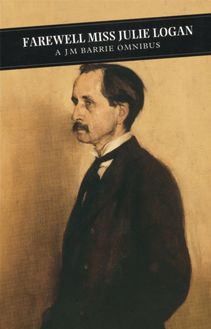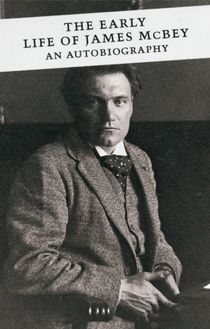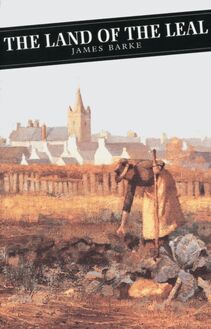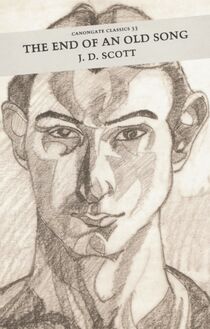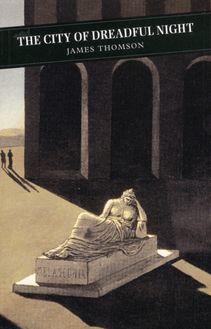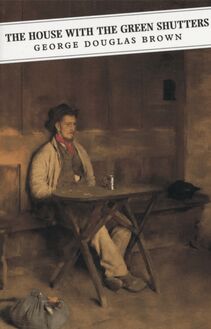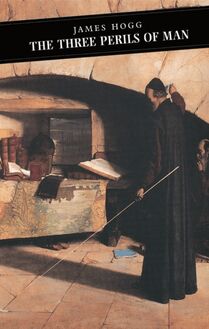Golden Bough , livre ebook
556
pages
English
Ebooks
2010
Vous pourrez modifier la taille du texte de cet ouvrage
Obtenez un accès à la bibliothèque pour le consulter en ligne En savoir plus
Découvre YouScribe en t'inscrivant gratuitement
Découvre YouScribe en t'inscrivant gratuitement
556
pages
English
Ebooks
2010
Vous pourrez modifier la taille du texte de cet ouvrage
Obtenez un accès à la bibliothèque pour le consulter en ligne En savoir plus
Publié par
Date de parution
01 juillet 2010
Nombre de lectures
1
EAN13
9781847675347
Langue
English
Publié par
Date de parution
01 juillet 2010
Nombre de lectures
1
EAN13
9781847675347
Langue
English
J.G. FRAZER
The Golden Bough
A Study in Comparative Religion
Introduction by
Cairns Craig
Contents
Introduction
Preface
Chapter One: The King of the Wood
The Arician Grove
Primitive Man and the Supernatural
Incarnate Gods
Tree-Worship
Tree-Worship in Antiquity
Chapter Two: The Perils of the Soul
Royal and Priestly Taboos
The Nature of the Soul
Royal and Priestly Taboos
Chapter Three: Killing the God
Killing the Divine King
Killing the Tree-Spirit
Carrying out Death
Adonis
Attis
Osiris
Dionysus
Demeter and Proserpine
Lityerses
The Corn-Spirit as an Animal
Eating the God
Killing the Divine Animala
Transference of Evil
Expulsion of Evils
Scapegoats
Killing the God in Mexico
Chapter Four: The Golden Bough
Between Heaven and Earth
Balder
The External Soul in Folk-tales
The External Soul in Folk-custom
Conclusion
Note: Offerings of First-fruits
Appendix One: Totemism
Appendix Two: The Origin of Totemism
Appendix Three: The Scope of Social Anthropology
Appendix Four: from The Worship of Nature
Index
Introduction
I N the fifty years after its publication in 1890, no single book had a larger impact on the intellectual concerns of the Western world than J. G. Frazer’s The Golden Bough . It was, of course, a foundational text for the new discipline of social anthropology, shaping the issues around which the discipline would develop, but its impact was felt just as powerfully in philosophy, theology and psychology, in the social disciplines of sociology and politics and in literary and art criticism. The roll call of those who were influenced by or responded to The Golden Bough includes many of the most prominent and radical thinkers of the period, including Malinowski and Durkheim in social anthropology, Bergson and Ryle in philosophy, Freud in psychology and Spengler and Toynbee in philosophical history. The power that Frazer’s work held over the European mind is symbolised by the fact that Wittgenstein, who had written about it in 1930, was still writing about it as late as 1948. 1 Equally, the search for the ritual and archetypal significances of works of art, initiated in the 1890s by Jane Harrison and Gilbert Murray, who applied the methods of The Golden Bough to classical literature, was to culminate in the mid-century in some of the most important of modern approaches to the study of English literature in the work of critics such as Wilson Knight in Britain and Northrop Frye in North America. Like some volcanic irruption from deep underground, Frazer’s accounts of the magic and the legends of primitive peoples, his tracking of the strange origins of familiar Graeco–Roman myths, the explanations of the savage roots of religion and the relation of sacrificial kingship to seasonal rituals poured across the intellectual landscape, reshaping the ways in which the human mind and human history were conceived. And perhaps The Golden Bough ’s most enduring legacy was its impact on creative artists, who found in Frazer’s work not only a new vocabulary of myth that could be applied to modern conditions but a new conception of the profound and irrational depths of the human mind, depths which could only be expressed through entirely new forms that combined the most adventurous aspects of modernity with the most powerful remnants of the primitive. 1
When T. S. Eliot declared that for modern writers ‘the maxim, return to the sources, is a good one’ because they ‘should be aware of all the metamorphoses of poetry that illustrate the stratifications of history that cover savagery’, 2 he was acknowledging what had been learned from Frazer: that underlying the modern world, like a series of archaeological strata, were a variety of savage ones, and that modern civilisation was a thin layer through which it was easy to reach down into those savage origins. When Frazer envisaged the modern world as ‘cracked and seamed, sapped and mined with rents and fissures and yawning crevasses’, opening on to a primitive belief in magic which ‘is very much what it was thousands of years ago in Egypt and India’ and remains the environment of the ‘ignorant and superstitious classes of modern Europe’, 3 he implied the structure of works like Eliot’s The Waste Land , with its underlying framework of powerful myths haunting the facile surface of modern European civilisation. Eliot proclaimed that Joyce, with some help from Yeats, was the inventor of the ‘mythic method’ which could make sense of the ‘immense panorama of futility and anarchy which is contemporary history‘, 1 in fact, all of them depended on Frazer, as Eliot himself made clear in his notes to The Waste Land : ‘To another work of anthropology I am indebted in general, one which has influenced our generation profoundly; I mean The Golden Bough ; I have used especially the two volumes Adonis, Attis, Osiris ’. 2 Throughout the development of modernist literature in the first half of the twentieth century Frazer’s writings played a crucial role, providing both some of its key narrative structures – such as the myth of the dying god who must be sacrificed for the return of fertility 3 – and the inspiration for some of its most daring formal innovations, such as the revelation of archetypal myths still operative within a modern environment. Both aspects can be found in the work of the major modernist writers of the period on both sides of the Atlantic – in Conrad, in Yeats, in Joyce, in Woolf, in Faulkner – and in the work of many of the most important writers of the Scottish Renaissance, from John Buchan and Lewis Grassic Gibbon to Neil Gunn, Edwin Muir and Naomi Mitchison. Even when Frazer’s work had lost much of its original surprise, and its treatment of the primitive had been superseded by later anthropologists, its literary influence continued to be felt in works such as Robert Graves’s The White Goddess , 4 in the poetry of Ted Hughes, in the work of Scottish writers such as Muriel Spark – who sets one of her late novels, Territorial Rites , on the banks of the Lake at Nemi where Frazer’s narrative opens – and in the writings of Allan Massie, whose depictions of modern European society are constantly juxtaposed with elements from Frazer’s narrative. Indeed, in Sins of the Father , a novel about the consequences of Fascism, one of the characters has on the wall in his apartment, an ‘aquatint reproduction of Turner’s The Golden Bough ,’ 1 which becomes the symbolic locus for the terrors both of Europe in the Second World War and of Argentina in the 1960s. In its representation of a terrifying past which humanity had not progressed beyond, Frazer’s work provided an explanation for the horrific present which Europe lived through between 1890 and the 1960s, and if that explanation provided no palliative to the horrors of modern history, it at least provided artists with a means of making sense of it, and thereby making it amenable again to the powers of the imagination.
The profound effect of The Golden Bough was based not on the absolute novelty of Frazer’s work – much had been done before him by British anthropologists such as Tyler – nor on its long-term significance as an explanation of ‘the savage mind’ – no modern anthropologists would regard Frazer as the basis of the discipline as it now exists. Its shock effect came from the fact that it collapsed traditional conceptions of progressive history, revealing that the past that modern humanity thought it had left behind still shadowed its contemporary existence and was, indeed, more pervasive in modern consciousness than the discoveries of science made over the last four hundred years. Frazer’s presentation of the history of humanity negated both the eighteenth-century Enlightenment and the nineteenth-century social Darwinist conceptions of continuous progressive improvement towards ever-higher levels of rationality: for Frazer, the history of humanity was a tale of repeated and terrible error out of which, with little certainty, had come the fragile conceptions of scientific truth on which modern civilisation was based, conceptions constantly threatened by the return of the mistaken forms of understanding – both magical and religious – on which primitive society was based. It is this negation of progressive history, this awareness of the fact that even the ‘light’ of modern science is rooted in the ‘dark’ truths of the primitive, that made Frazer the prophet of the modern consciousness. At the same time, Frazer presented this dark history of humanity in a prose as lucid and as ordered as any eighteenth-century Enlightenment thinker could have asked for. In Frazer, the Enlightenment search for truth is enacted in the clarity and regularity of his sonorous prose; but the post-Enlightenment awareness that truth may be no more than an illusion of our own making is the burden of the history that he has to recount. The balance between the two made The Golden Bough both the closing statement of one historical epoch and the opening statement of the next: a grand Victorian narrative of the rise of civilisation from savagery reveals, at the same time, that savagery is the stronger and more permanent condition, and that the beneficent truths of the Christian religion are themselves but the spiritual after-echo of all-too-physical savage rituals. Frazer’s ultimate achievement was the blending of a style which reflected Enlightenment optimism about the powers of reason with a content which undermined and challenged that optimism, producing a text which hovers constantly between sympathetic identification with the early stages of the journey towards civilisation and appalled horror at the irrational beliefs, and even more irrational actions, of primitive humanity. 1
Frazer’s work established the context in which modernist – and indeed postmodernist – thought conceived of Western history not as the
